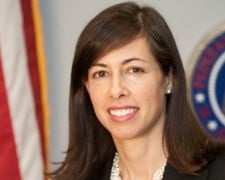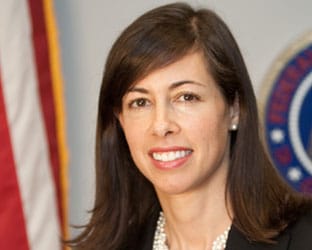 Tuesday, Jan. 3, 2017 marks the final day as a FCC Commissioner for Jessica Rosenworcel.
Tuesday, Jan. 3, 2017 marks the final day as a FCC Commissioner for Jessica Rosenworcel.
That’s because the Republican-led U.S. Senate failed to conduct a renomination hearing prior to the end of the last Congress. With a new Congress now in session, and moving boxes likely filling the halls of the Senate and House Office Buildings across Capitol Hill, Rosenworcel penned a touching thank you to her colleagues that primarily addresses her passion for “bringing the connected future to all Americans.”
What wasn’t mentioned at all?
Television.
Radio was noted twice, but in regard to public safety, and the future of 911.
Most of the 5,200-word piece, distributed by the FCC on Tuesday, is devoted to the future of education technology.
“I began a campaign for E-Rate 2.0 and led the charge for updating this program at the FCC,” she writes. “As a result, the program has been rebooted, reinvigorated, and recharged. It now has clear capacity goals—with sights set on Gigabit speeds. It has a modernized technology model, with a new premium on Wi-Fi to facilitate one-to-one learning environments. It also has an updated budget—with an eye to the future of education.”
Rosenworcel also addresses the future of broadband.
“I am proud to have supported the effort to update our nation’s broadband definition from 4 Megabits to 25 Megabits,” she notes. “But I continue to believe that it’s time to stop dreaming small. We need to dream big and set audacious broadband goals. I am proud I was the first to call for a new broadband standard of 100 Megabits.”
Wireless policy and unlicensed spectrum are also discussed by Rosenworcel. She says, “Unlicensed spectrum—like Wi-Fi—democratizes Internet access, encourages permissionless innovation in the Internet of Things, and contributes $140 billion in economic activity annually. This is good stuff. Nonetheless, historically the legislative process has overlooked the value of unlicensed spectrum because it gets low marks in the scoring process at the Congressional Budget Office. But this dated accounting misses the mark—because the future benefits of unlicensed spectrum throughout the economy are so great. Similarly, at the FCC, unlicensed spectrum has too often been an afterthought—when it deserves to be in policy primetime.”
Rosenworcel opened her farewell letter by calling her tenure as a Commissioner, which began on May 11, 2012, “an honor, a privilege, and a wild ride.”
One can only imagine what she truly means by her idea of a “wild ride,” as her time on the FCC has been defined largely by extreme partisanship between Republican and Democratic members and, most infamously, her role as a pivotal decision-maker in the now-scuttled set-top box proposal from outgoing FCC Chairman Tom Wheeler.
She closes her note with a thank-you to all she worked with while on the Commission.
“I am grateful to my colleagues at the FCC—Chairman Tom Wheeler, Commissioner Mignon Clyburn, Commissioner Ajit Pai, Commissioner Michael O’Rielly, Chairman Julius Genachowski, and Commissioner Robert McDowell—for their friendship,” she notes. ” I am also thankful for their commitment to public service and dedication to thoughtful policymaking. In addition, I am grateful to the staff of the agency, who are the real heroes of the FCC. Their understanding of communications law is abundant, their knowledge of network engineering and economics is without equal, and their commitment to the public interest is deep and unyielding. But above all, I am grateful to the American people who entrusted me with this extraordinary opportunity to participate in history and lay the groundwork for a more connected future.”





